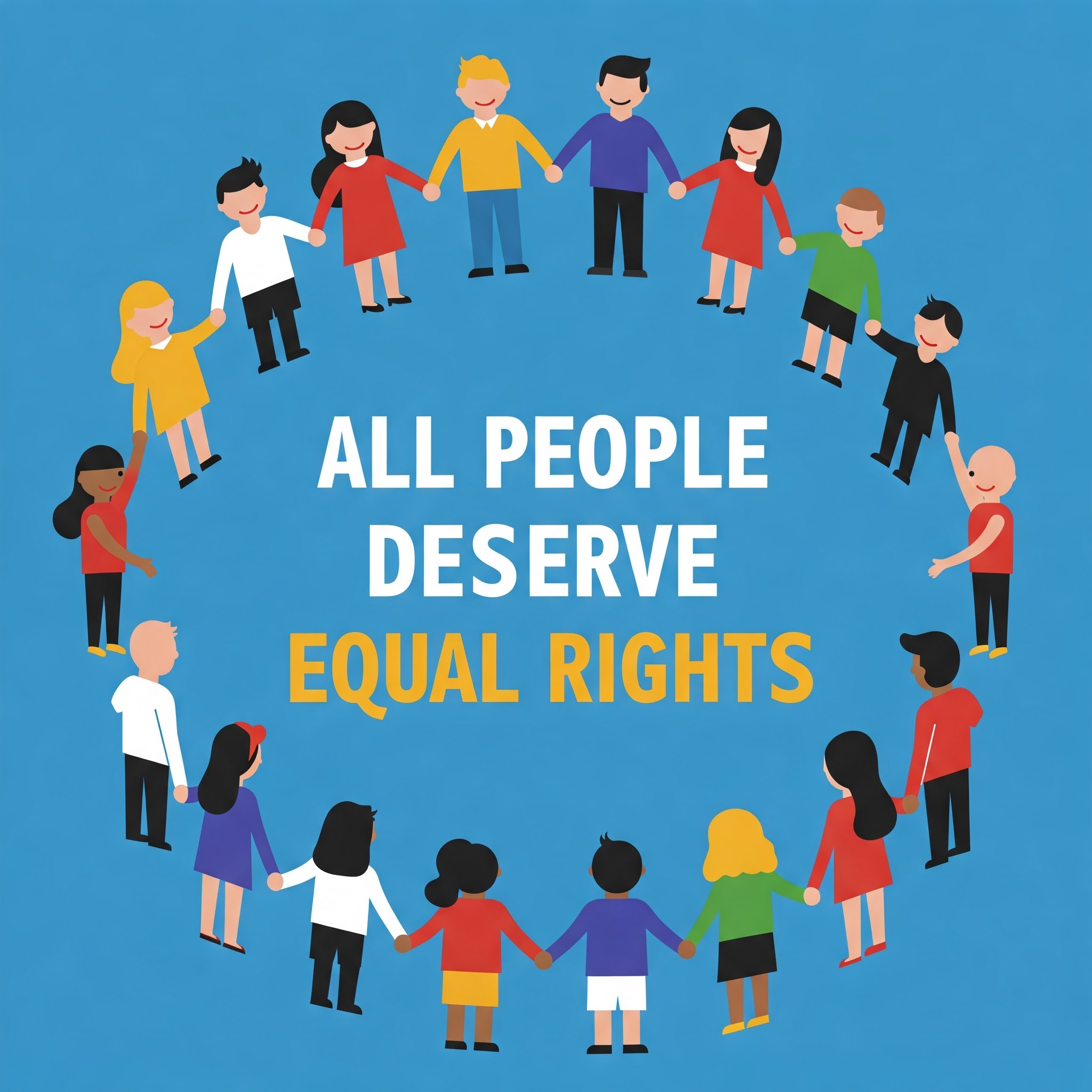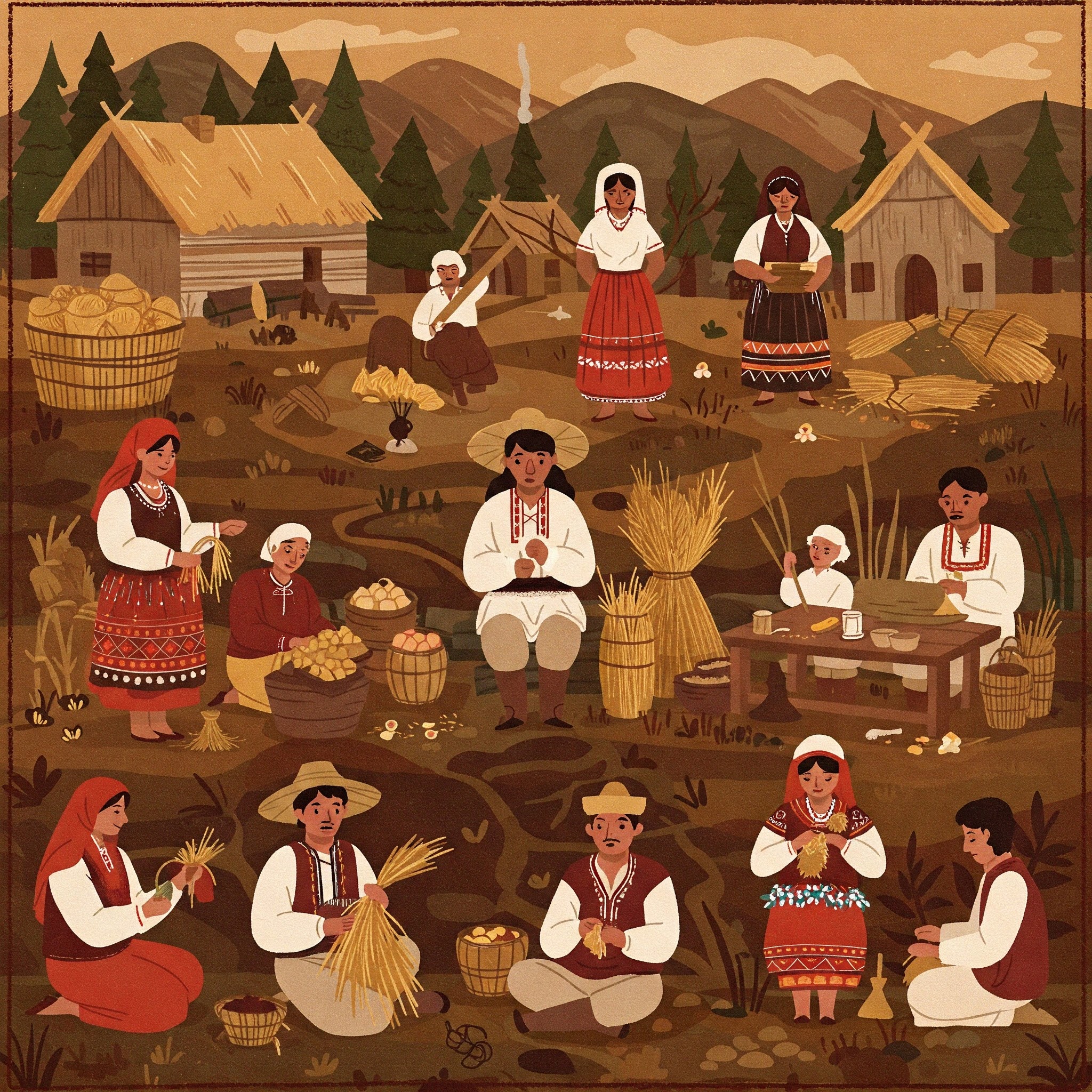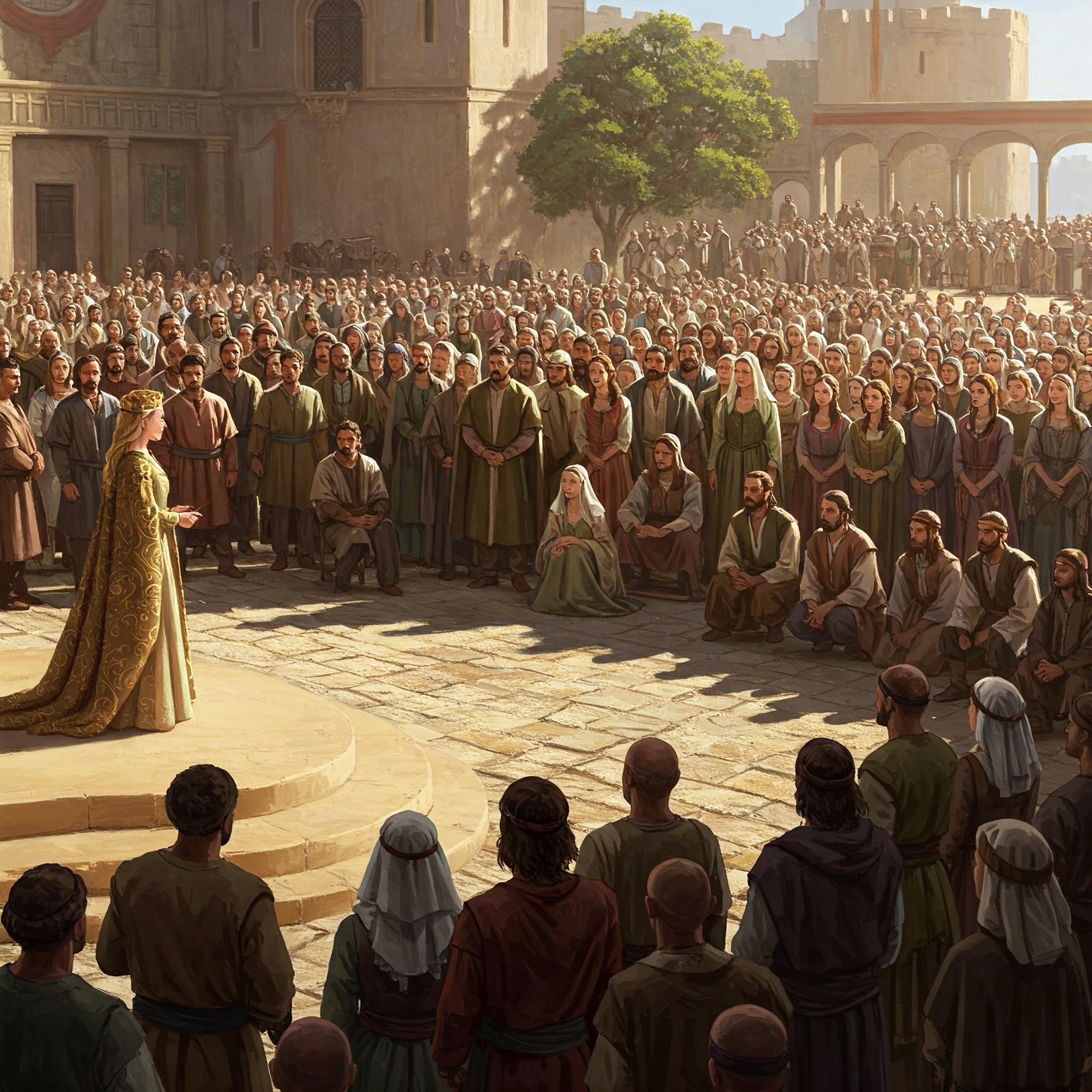People
Definition
The term "people" refers to human beings collectively or as a group, often defined by common attributes such as nationality, community, or shared interests. It can also be used in the plural form of "person" to describe multiple individuals.
Parts of Speech
- Noun
- Verb
Pronunciation
American English
- IPA Pronunciation: /ˈpiː.pəl/
- Respelling: PEE-puhl
British English
- IPA Pronunciation: /ˈpiː.pəl/
- Respelling: PEE-puhl
Etymology
The word "people" originates from Old French "peuple," derived from the Latin "populus," meaning "a nation, group, or multitude." Its usage in English dates back to the late Middle English period, where it referred to communities or groups of individuals.
Derivatives
- Population (noun)
- Peopled (verb, past tense)
- Peopling (verb, gerund)
- Populace (noun)
- Popular (adjective)
Synonyms
- Humans
- Population
- Community
Antonyms
- None
Usage
The term "people" is used in a variety of contexts, such as describing groups ("The people of this town are friendly") or populations ("The world’s people must work together to solve global challenges").
Related Terms
- Nation: A large group of people united by common descent, history, or culture.
- Society: An organized group of people living together in a community.
- Citizens: Members of a state or nation who owe allegiance to its government.
Detailed Definitions
Noun
- Human beings collectively: Refers to the entire human race or a large group.
- Example: "All people deserve equal rights."
- A community or group sharing common characteristics: Describes a subset of humans linked by shared traits.
- Example: "The people of this village have preserved their traditions."
- Subjects of a ruler or members of a nation: Refers to the collective members of a state or territory.
- Example: "The queen addressed her people in a public speech."
Verb
- To populate or fill with inhabitants: Indicates the act of occupying an area with individuals.
- Example: "The settlers peopled the new territory."
people



🇨🇳 Mandarin Chinese
- 人 (Rén)
- IPA Pronunciation: /ʐən˧˥/
- English Respelling: ren
- 人们 (Rénmen)
- IPA Pronunciation: /ʐən˧˥.mən/
- English Respelling: ren-men
🇮🇳 Hindi
- लोग (Log)
- IPA Pronunciation: /loːg/
- English Respelling: log
- जनता (Janatā)
- IPA Pronunciation: /d͡ʒənət̪aː/
- English Respelling: jan-taa
🇪🇸 Spanish
- Gente
- IPA Pronunciation: /ˈxente/
- English Respelling: hente
- Personas
- IPA Pronunciation: /peɾˈsonas/
- English Respelling: per-sonas
🇫🇷 French
- Gens
- IPA Pronunciation: /ʒɑ̃/
- English Respelling: zhan
- Personnes
- IPA Pronunciation: /pɛʁ.sɔn/
- English Respelling: pehr-son
🇸🇦 Modern Standard Arabic
- الناس (Alnas)
- IPA Pronunciation: /al-naːs/
- English Respelling: al-naas
- أشخاص (Ashkhaṣ)
- IPA Pronunciation: /aʃ.xaʂ/
- English Respelling: ash-khas
🇧🇩 Bengali
- লোক (Lōk)
- IPA Pronunciation: /lok/
- English Respelling: lok
- মানুষ (Mānuṣ)
- IPA Pronunciation: /manuʃ/
- English Respelling: ma-noosh
🇷🇺 Russian
- Люди (Lyudi)
- IPA Pronunciation: /ˈlʲʉdʲi/
- English Respelling: lyu-dee
- Персоны (Persony)
- IPA Pronunciation: /pʲɪrˈsonɨ/
- English Respelling: per-sony
🇵🇹 Portuguese
- Gente
- IPA Pronunciation: /ˈʒẽtɨ/
- English Respelling: zhen-ty
- Pessoas
- IPA Pronunciation: /pɨˈsoɐ̯ʃ/
- English Respelling: peh-soash
🇮🇩 Indonesian
- Orang
- IPA Pronunciation: /ˈɔraŋ/
- English Respelling: o-rang
- Manusia
- IPA Pronunciation: /maˈnusia/
- English Respelling: ma-noo-see-ah
🇩🇪 German
- Leute
- IPA Pronunciation: /ˈlɔʏ̯tə/
- English Respelling: loy-te
- Menschen
- IPA Pronunciation: /ˈmɛnʃən/
- English Respelling: men-shen
🇯🇵 Japanese
- 人々 (Hitobito)
- IPA Pronunciation: /çi̥to̞bʲito̞/
- English Respelling: hito-bito
- 人間 (Ningen)
- IPA Pronunciation: /ɲĩŋɡeɴ/
- English Respelling: nin-gen
🇻🇳 Vietnamese
- Người
- IPA Pronunciation: /ŋʷi˧ˀ˨ʔ/
- English Respelling: ngu-ee
- Mọi người
- IPA Pronunciation: /mɔj ŋʷi˧ˀ˨ʔ/
- English Respelling: moy ngu-ee
🇰🇷 Korean
- 사람들 (Saramdeul)
- IPA Pronunciation: /sʰa̠ɾam̚dɯɭ/
- English Respelling: sa-ram-deul
- 인간들 (Ingandeul)
- IPA Pronunciation: /in.ɡan.dɯl/
- English Respelling: in-gan-deul
🇹🇷 Turkish
- İnsanlar
- IPA Pronunciation: /inˈsanɫaɾ/
- English Respelling: in-san-lar
- Kişiler
- IPA Pronunciation: /kiˈʃiɫeɾ/
- English Respelling: kee-shee-ler
🇵🇰 Urdu
- لوگ (Log)
- IPA Pronunciation: /loːg/
- English Respelling: log
- عوام (Awam)
- IPA Pronunciation: /ɑː.ʋɑːm/
- English Respelling: a-vaam





